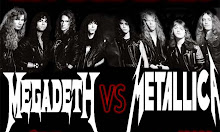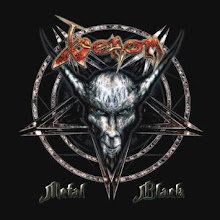
Opeth is a Swedish heavy metal band from Stockholm, formed in 1990. While the band has been through several personnel changes, singer, guitarist, and songwriter Mikael Åkerfeldt has remained Opeth's driving force since joining promptly after its inception.
Isberg and Åkerfeldt recruited drummer Anders Nordin, bassist Nick Döring, and guitarist Andreas Dimeo. Unsatisfied with the band's slow progress, Döring and Dimeo left the band after their first performance, and were replaced by guitarist Kim Pettersson and bassist Johan DeFarfalla. After the next show, DeFarfalla left Opeth to spend time with his girlfriend in Germany, and was replaced by Åkerfeldt's friend, bassist Peter Lindgren. Lead guitarist Pettersson left following the band's next performance, and Lindgren switched to guitar. After losing interest in the band, Isberg quit in 1992 too because of creative differences.
With three members in the band, Åkerfeldt took over vocal duties, and the trio spent the next year writing and rehearsing new material. The group began to rely less on the blast beats and aggression typical of death metal, and incorporated acoustic guitars and guitar harmonies into their music; developing the core sound of Opeth. Stefan Guteklint joined on bass in 1993, but was dismissed by the band after signing its first record deal with Candlelight records in 1994. The band initially employed former member DeFarfalla as a session bassist for the recording, and he went on to join on a full-time basis following the release of Opeth's debut album in 1995.
After a few live shows in the United Kingdom, Opeth returned to the studio in March 1996 to begin work on a second album, again produced by Dan Swanö. Morningrise was released in Europe on June 24, 1996. With only five songs and lasting 66 minutes, the album featured Opeth's longest song, the twenty-minute "Black Rose Immortal". Morningrise was a huge success, with Allmusic giving the album four stars. Opeth toured the UK in support of Morningrise, followed by a 26-date Scandinavian tour with Cradle of Filth. While on tour, Opeth attracted the attention of Century Media records, who signed the band and released the first two albums internationally in 1997.
The band added bassist Martin Mendez shortly before recording, but due to time constraints, Åkerfeldt played bass on the album. My Arms, Your Hearse was released on August 18, 1998, to critical acclaim. As Opeth's first international release, the album exposed the band to a wider global audience. My Arms, Your Hearse marked the beginning of a shift in the band's sound, focusing less on guitar harmonies and more heavily on progressive metal riffs.
In 1999, the ownership of Candlelight Records changed hands, with owner and friend of the band Lee Barrett leaving the company. Opeth signed with UK label Peaceville Records in Europe, which was distributed by Music For Nations. Opeth reserved time at Studio Fredman to begin work on its next album, but recording was postponed while the studio was relocated. Due to time constraints, the band was able to rehearse only twice before entering the studio. Delays with the album's artwork pushed the release back an additional month, and Still Life was released on October 18, 1999.
Opeth released its fifth studio album, Blackwater Park, on February 21, 2001. Allmusic called Blackwater Park "astounding, a work of breathtaking creative breadth", noting that the album "keeps with Opeth's tradition by transcending the limits of death/black metal and repeatedly shattering the foundations of conventional songwriting". In support of Blackwater Park, Opeth embarked on its first world tour, headlined Europe for the first time, and made an appearance at the 2001 Wacken Open Air festival in Germany, playing to a crowd of 60,000.
Deliverance was released on November 4, 2002, and debuted at number 19 on the US Top Independent Albums chart, marking the band's first US chart appearance. Allmusic stated, "Deliverance is altogether more subtle than any of its predecessors, approaching listeners with haunting nuances and masterful dynamics rather than overwhelming them with sheer mass and complexity."
Opeth was scheduled to perform in Jordan without a crew due to the fear of terrorist attacks in the Middle East. Opeth's tour manager distributed 6,000 tickets for the concert, but before the band left for Jordan, drummer Lopez called Åkerfeldt stating he was having a anxiety attack and could not perform, forcing the band to cancel the show. In early 2004, Lopez was sent home from Canada after more anxiety attacks on tour. Opeth decided against cancelling the remainder of the tour, and Lopez's drum technician filled in for two concerts. Lopez promised that he would return to the tour as soon as he could, but two shows later Opeth asked Strapping Young Lad drummer Gene Hoglan to fill in. Lopez eventually returned to Opeth for the Seattle show on the final leg of the Deliverance and Damnation tour. Per Wiberg also joined the band on tour to perform keyboards, and after more than a year on tour, Opeth returned home to start writing new material in 2004.
After nearly 200 performances in support of Ghost Reveries, Opeth entered Fascination Street Studios with Åkerfeldt producing, in November 2007. By January 2008, Opeth had recorded 13 songs, including three cover songs. The finished album, Watershed, features seven tracks, with cover songs used as bonus tracks on different versions of the album. Watershed was released on June 3, 2008. Åkerfeldt described the songs on the album as "a bit more energetic". Opeth has planned tours in support of Watershed, including headlining the UK tour Defenders of the Faith with Arch Enemy, an appearance at Wacken Open Air and the Progressive Nation tour with headliner Dream Theater.
Opeth are currently on a worldwide tour in support of the album. However, gigs in Spain and Portugal had to be cancelled due to the Burning Live Festival being cancelled, and four concerts from June 26 to June 29 had to be cancelled due to Mikael Åkerfeldt having chicken pox. Two of the festivals Opeth were supposed to play at were Hovefestivalen and Metaltown in Sweden. Their replacement for both the absences was Satyricon. From September to October, Opeth toured North America again backed by High on Fire, Baroness, and Nachtmystium. They recently returned to tour Europe for the rest of the year with Cynic and The Ocean..
On 25 January 2009, Opeth played their first show in India at IIT Madras's cultural festival Saarang. On March 6, 2009 the band played in the Middle East at the annual Dubai Desert Rock Festival in Dubai. On March 26, 2009 it was announced that Opeth would take part in the first European Progressive Nation tour alongside Dream Theater, Bigelf and Unexpect. On 24 April 2009, Opeth will headline the first day of Metal Hammer Magazine's first UK metal music festival HammerFest. As of May 2009, the band was touring North America with Enslaved. On May 16, Åkerfeldt (at a show in Hollywood) stated that the band will continue touring until the end of 2009, take a little break, and then start working on a new album.
During a show on November 25th 2009, at the Palace Theater Melbourne Australia, Åkerfeldt, whilst conversing with the crowd, discussed that the band had been around for 20 years in 2010, and that they wouldn't be returning to Australia for 2-3 years, as they had an album to record in 2010.
From March 30th through April 9th 2010, Opeth is doing a 6 show, worldwide 20th anniversary tour called "Evolution XX: An Opeth Anthology." They will play the Blackwater Park album in its entirety, and a number of other songs; said Mikael Akerfeldt: "It seems like we’ll pull out a few songs we’ve never played before, some of which fans all over the world have been demanding to hear for years and years."
 Slipknot is an American nu metal band from Des Moines, Iowa, formed in 1995. Slipknot consists of nine members, the current band members are Sid Wilson, Joey Jordison, Paul Gray, Chris Fehn, Jim Root, Craig Jones, Shawn Crahan, Mick Thomson, and Corey Taylor. Each member of the band wears a unique mask.
Slipknot is an American nu metal band from Des Moines, Iowa, formed in 1995. Slipknot consists of nine members, the current band members are Sid Wilson, Joey Jordison, Paul Gray, Chris Fehn, Jim Root, Craig Jones, Shawn Crahan, Mick Thomson, and Corey Taylor. Each member of the band wears a unique mask. 





































